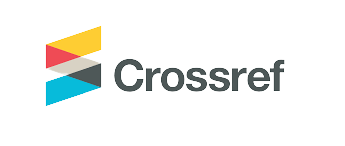Education Secularism in Indonesia and Society's Interpretation
Keywords:
education secularism, societys interpretatation, impactAbstract
Education produces an understanding or thought that can turn people into human beings who can distinguish between good and bad. The understanding of secularism has various impacts on the life of the state and this applies to all countries in the world if they want to apply this understanding. In Indonesia, secularism in education has occurred for a long time, namely during the 19th century when the colonizers ruled the world, they brought tremendous influence on the government order and spiritual order in this country. General and religious education are not balanced and more prominent in general education alone is emphasized. However, in Islam, this is a wrong understanding because it excludes God as the almighty Essence. This study aims to understand the history, the spread of secularism in education in Indonesia, and what steps should be taken in solving this problem. By using a literature study and descriptive approach, it turns out that understanding the secularism of education in Indonesia has a significant impact in the sense that we are difficult to unite if there are differences in education and there is a need for evaluation with a situation that has already taken root.
References
Hadi, H. (2016). Kebijakan Pendidikan Nasional Terhadap Pendidikan Islam Dan Pendidikan Sekuler. Miqot, 11, No. 2.
Huberman, A. M., & Jhonny, S. (2014). Qualitative Data Analysis a Methods Sourcebook. Arizona State University.
Husna, U., & Thohir, M. (2020). Religious Moderation as a New Approach to Learning Islamic Religious Education in Schools. Nadwa: Jurnal Pendidikan Islam, 14(1), 199–222. https://doi.org/10.21580/nw.2020.14.1.5766
Hutabarat, B. A. (n.d.). Kebijakan Pendidikan Di Indonesia: Evaluasi Terhadap Rumusan Kebijakan Kurikulum Bidang Pendidikan Tinggi. Reformed Center for Religion and Society, Societas Dei, 04, No.02, 129.
Jamaluddin. (2013). Sekularisme : Ajaran Dan Pengaruhnya Dalam Dunia Pendidikan. Universitas Islam Negeri Ar-Raniry Banda Aceh, Jurnal Mudarissuna, 03, No.2, 313.
Kartikaningrum, E. D. (2015). Panduan Penyusunan Studi Literatur. Mojokerto: Politeknik Kesehatan Majapahit Mojokerto, 04.
Meran, M. (2019). Agama Dan Sekularisme Di Indonesia (Hybriditas Dan Komoditas Agama). Sekolah Tinggi Katolik St. Yakobus Merauke, Jurnal Jumpa, VII, No.1, 111.
Mulyadi, M. (2011). Penelitian Kuantitatif Dan Kualitatif Serta Pemikiran Dasar Menggabungkanya. Universitas Padjadjaran, Jurnal Studi Komunikasi Dan Media, 15 No. 1, 132.
Nasution, E. (2016). Problematika Pendidikan Di Indonesia. IAIN Ambon, Jurnal Fakultas Ushuluddin Dan Dakwah IAIN Ambon, 03.
Pachoer, R. D. A. (n.d.). Sekularisasi Dan Sekularisme Agama. UIN Sunan Gunung Djati Bandung, Religious: Jurnal Agama Dan Lintas Budaya, 1, No. 1, 93.
Paranrangi, T. (2013). Sekularisme dalam Perkembangan Islam. Shautut Tarbiyah, 19, No. 1. https://doi.org/http://dx.doi.org/10.31332/str.v19i1.42
Pendidikan, P. S. (2008). Pendekatan, Jenis, Dan Metode Penelitian Pendidikan, Kompetisi Penelitian Dan Pengembangan. Direktur Tenaga Kependidikan Ditjen PMPTK.
Susanto, R., Rohmah, W., Hidayanti, S. N., & Sugiyar, S. (2023). Interreligious Harmonization (Analytic Study of Kalicinta Village, Kotabumi, Lampung). Jurnal Kodifikasia: Jurnal Penelitian Keagamaan San Sosial-Budaya, 17(1). https://doi.org/http://dx.doi.org/10.21154/kodifikasia.v17i1.5729
Wirian, O. (2017). Kewajiban Belajar Dalam Hadis Rasululloh Saw. Universitas Dharmawangsa Deli Serdang Sumatera Utara, Sabilarrasyad, l No.02 (J, 126.
Downloads
Published
How to Cite
Issue
Section
License
Copyright (c) 2025 Journal of Islamic Studies and Educational Innovation

This work is licensed under a Creative Commons Attribution-ShareAlike 4.0 International License.







